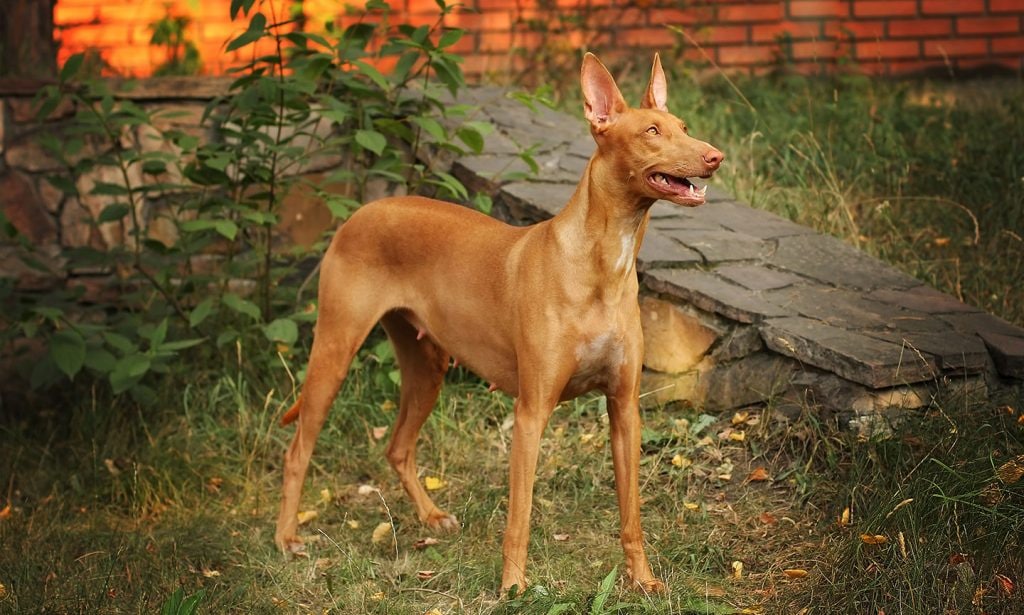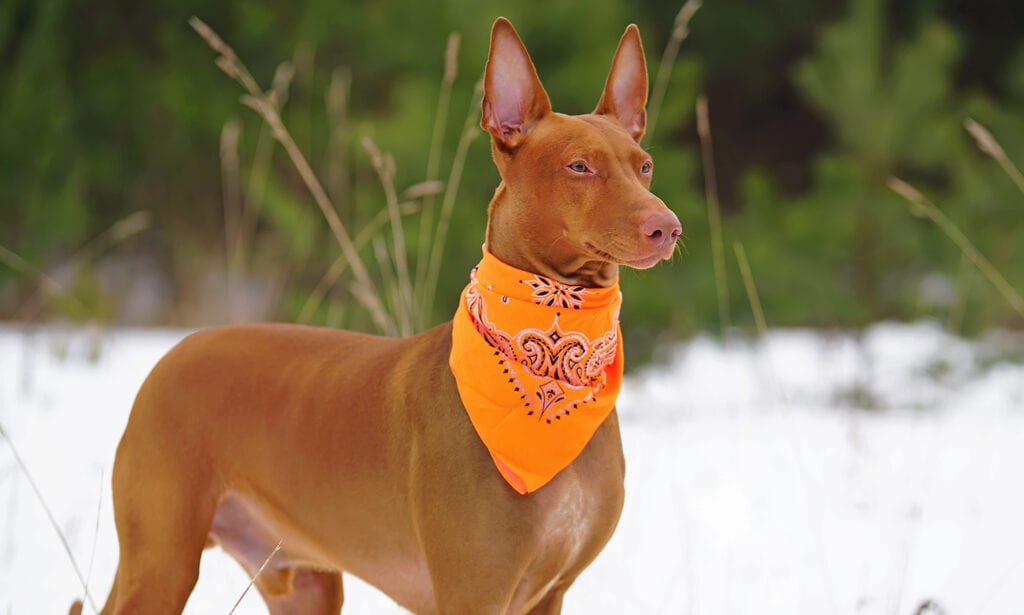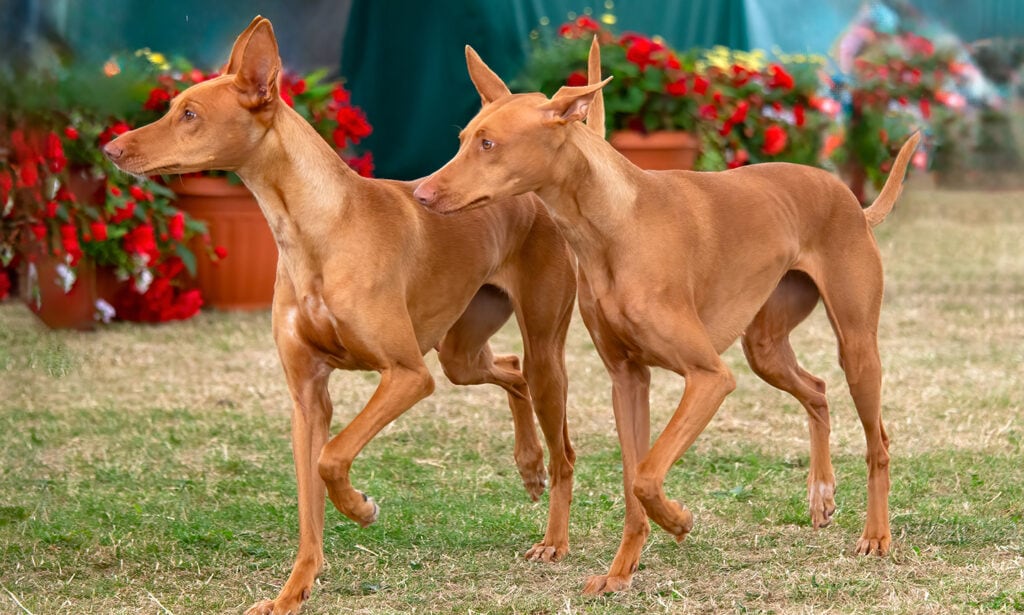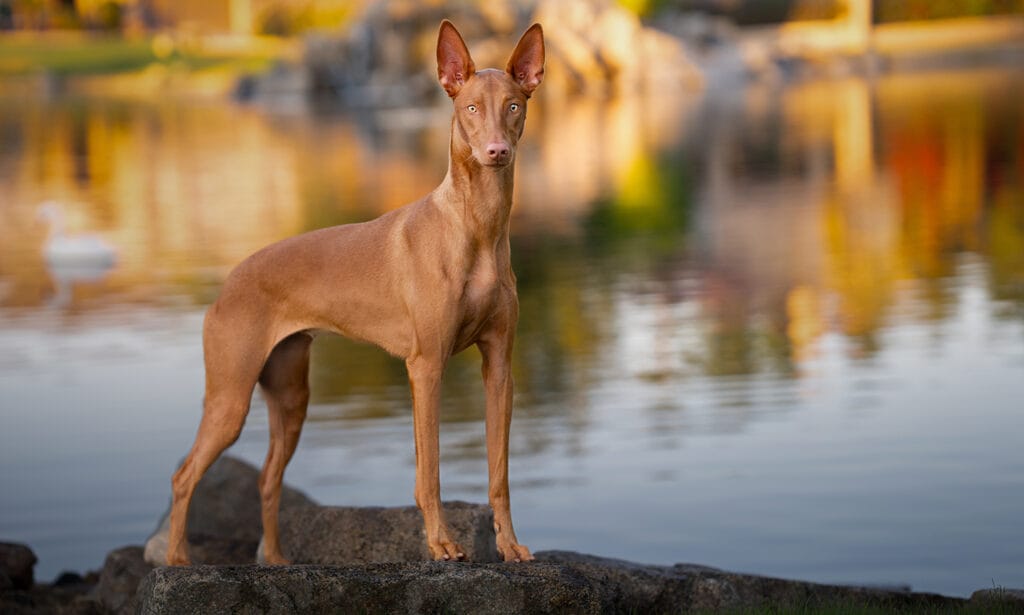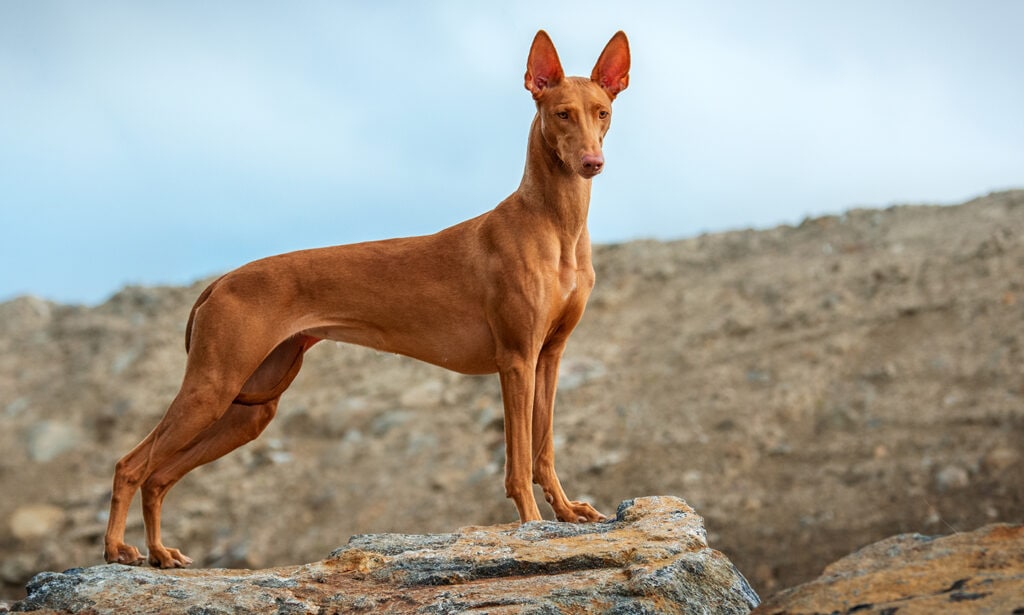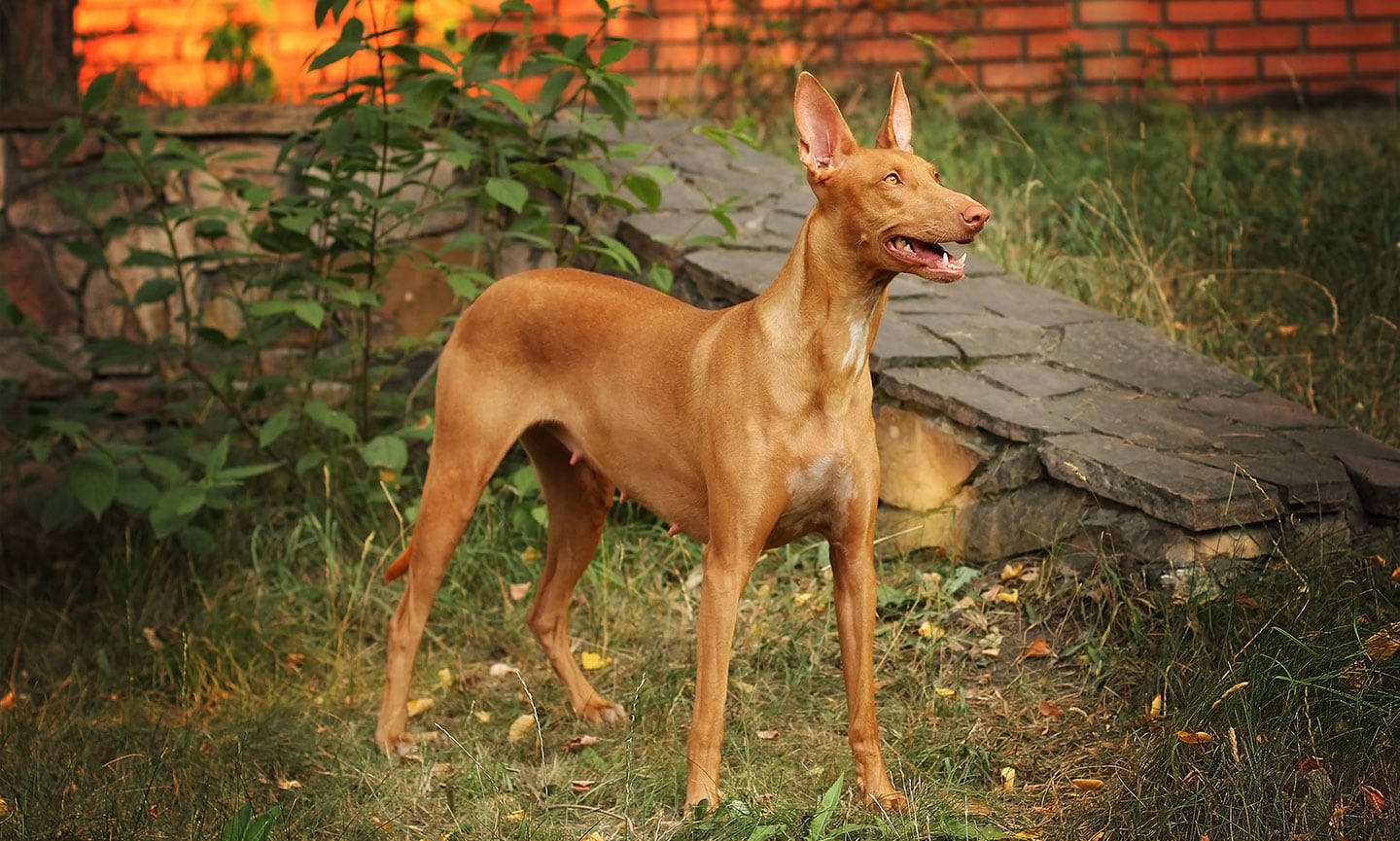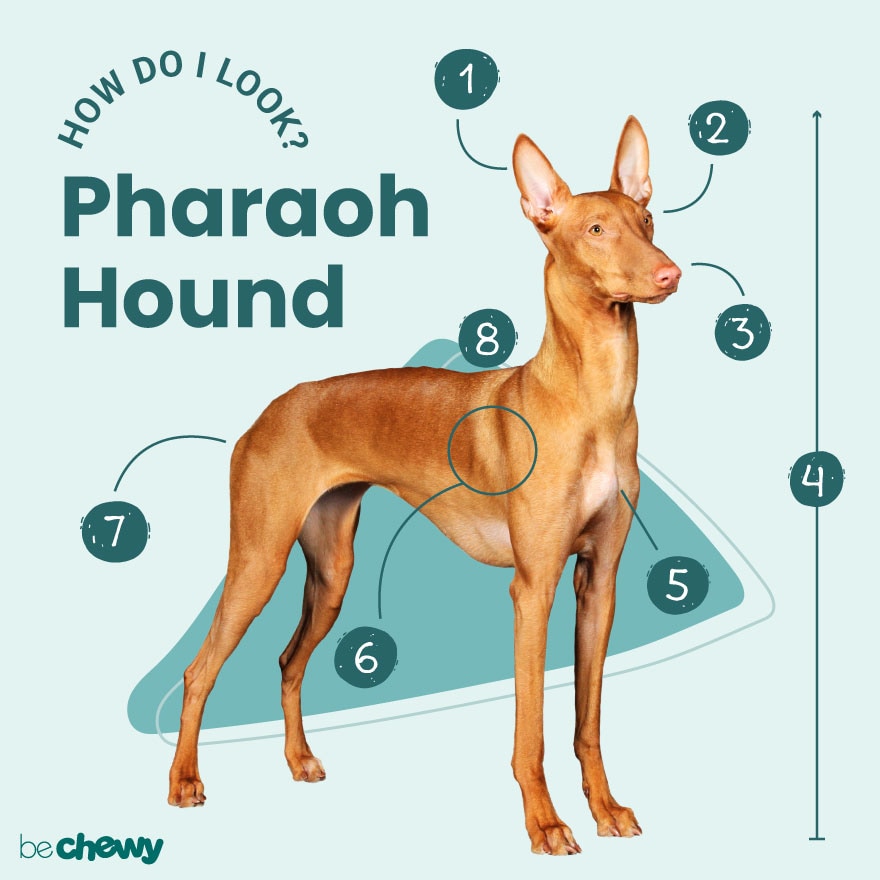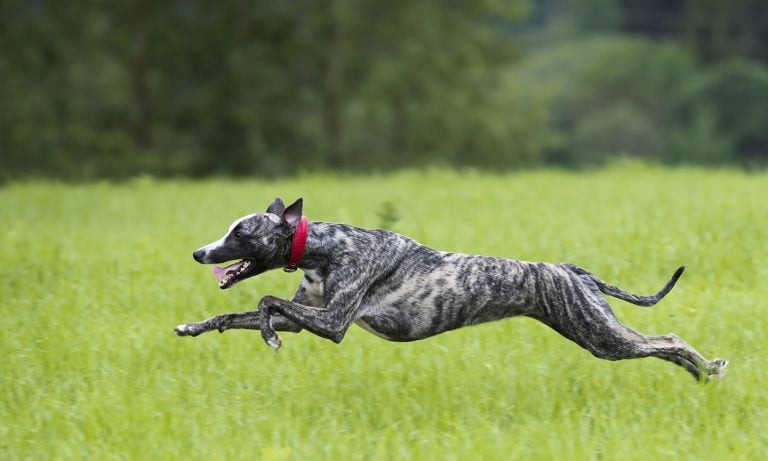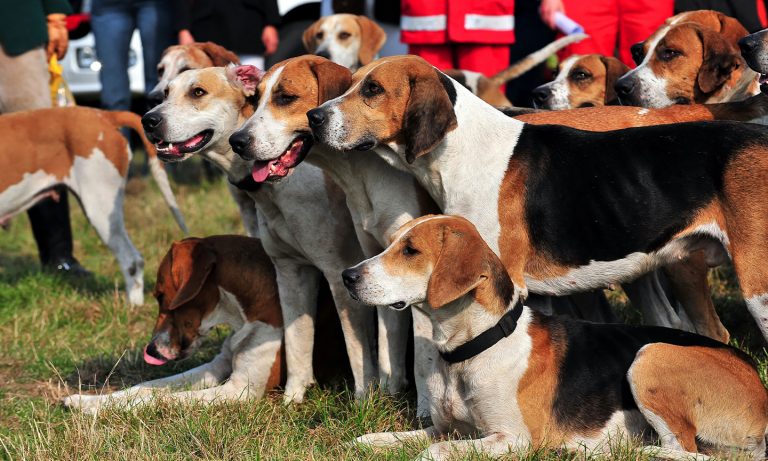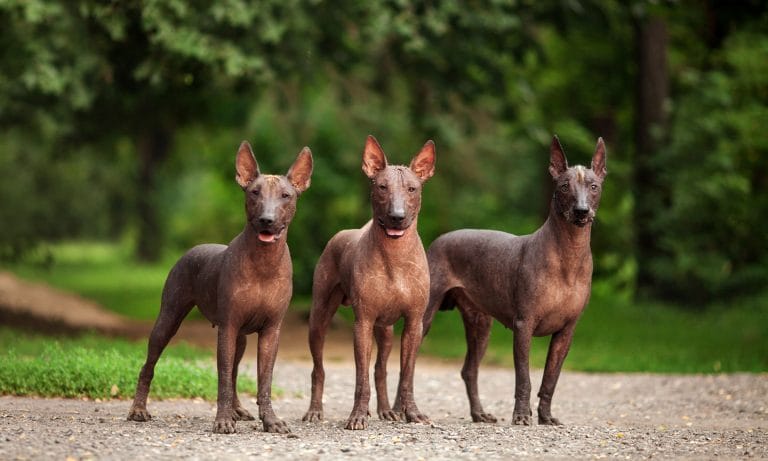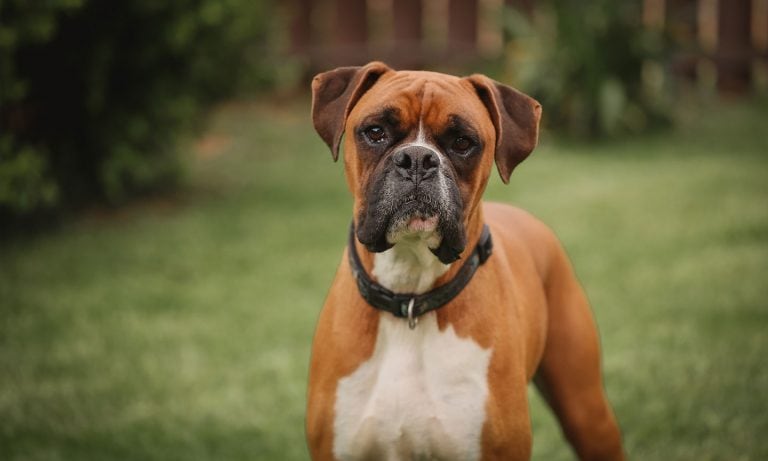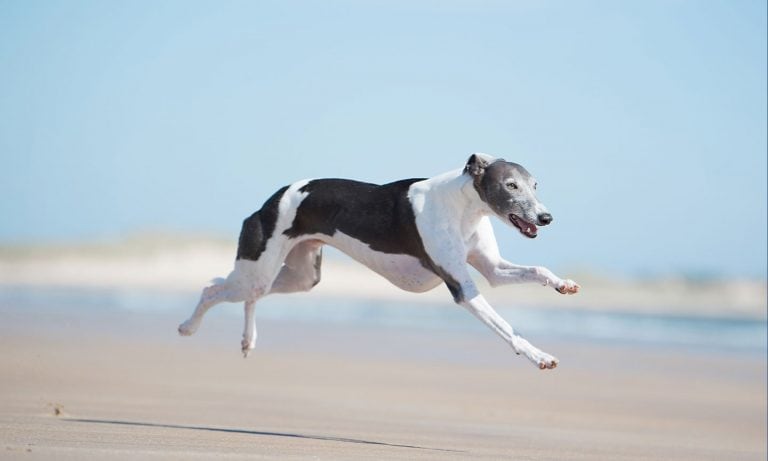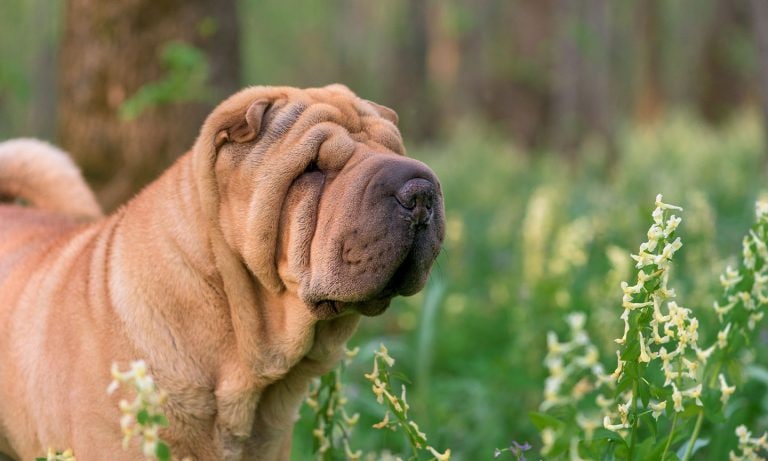So you’re looking for a furry friend who’s as quirky as they are stunning to look at? Check out the Pharaoh Hound. This crusading, clever canine can display many cat-like tendencies: aloofness, superiority and stealth (watch the food on the counter!). But don’t be fooled by their regal appearance; there’s plenty of personality lying beneath their stately stature. Joyful and alert, these dogs have a habit of lifting their lips to reveal a silly, sweet smile. And when they blush? Be still your heart! The signature rosy-pink flush on their ears, nose and chest, which appears when they are excited, is actually due to a lack of pigment on their nose and ears. Pharaoh Hounds aren’t exactly the socialite type, but they will loyally bestow affection upon their favorite human (that’s you). Just don’t expect cuddles—that won’t mesh with their high-brow style.
Breed Snapshot
Temperament:
EnergeticCleverSelectively AffectionateCoat Color:
ChestnutRed GoldenRich TanTan
Best For
Energetic and clever, Pharaoh Hound dogs are best for homes where their playful, athletic and affectionate attitude is appreciated. They thrive best as the sole pet of an experienced pet parent. When they're not out sporting their noble and powerful frame, they're happy to lounge around with you.
Pharaoh Hound Temperament
Clever and independently minded, Pharaoh Hounds have high intelligence and a reputation to be vocal, a trait that sets them apart from other sighthounds like the Greyhound. Expect them to bark to voice their displeasure. And that’s not the only thing setting them apart from the typical sighthound. While they bear a slight resemblance to the normally chilled-out Greyhound, they certainly have a bouncier and more excitable personality.
Sleek and striking, Pharaoh Hounds can be playful and affectionate with their people, but can be aloof with strangers. They tend to get along well with other dogs who can match their boundless high energy levels. But they also have very strong chasing and hunting instincts, so whenever they’re around small animals, you’ll have to watch them like an addictive Netflix show.
As the saying goes, these dogs’ bark is worse than their bite, which is rare. With their poised and peaceful demeanor, Pharaoh Hounds are known for their intelligence—you will be awed on the regular by their one-two punch of brains and brawn. When these two work together, it can result in antics that’ll have you laughing out loud—or cursing their wily ways. Case in point: They are often called “counter-surfers” thanks to their swiftness in scaling heights to scoop up food left out, a mischievous prank that is equal parts hilarious and maddening (not to mention dangerous, if they ingest something that’s toxic to dogs).
Pharaoh Hounds bond unapologetically with one single family member they deem their favorite. Because of this tendency for selectivity, early socialization (exposure to different people and experiences) from a young age is essential to help them warm up to the whole family and make them less wary of strangers.
How to Care for a Pharaoh Hound
Pharaoh Hounds may seem like they have a high-maintenance attitude, but they ultimately require low-maintenance care. For such a regal-looking breed, the Pharaoh Hound requires minimal help when it comes to hygiene. Their tight coat is very short, and they are low shedders, but they still require daily walks and consistent training to keep their stubborn streak in check.
Pharaoh Hound Health
The Pharaoh Hound is a relatively healthy breed with few health concerns, giving them a life expectancy of 12–14 years. While the risk of developing serious conditions is low, it’s important to be aware of potential health issues so you can take a proactive approach to protecting your pooch. Do your research and ask your vet for more information about how to keep your Pharaoh Hound healthy and happy.
- Patella Luxation: Pharaoh Hounds can be slightly predisposed to patella luxation (when the kneecap slips to one side). The condition can be mild causing only occasional lameness or bunny hopping or can be severe resulting in trouble walking and pain. Treatment options range from joint supplements and pain medication to surgery depending on the severity.
- Hip Dysplasia: Hip dysplasia is the inherited condition where the hip joint doesn’t form properly and rubs, causing the dog pain. Symptoms typically include decreased activity, lameness and “bunny hopping.” Treatments range from weight management to physical therapy to surgery.
- Anesthesia Sensitivity: Like all sighthounds (including Greyhounds), Pharaoh Hounds may be more sensitive to anesthesia due to their low body fat. This means they may be slower to recover from anesthesia. Discuss any concerns with your vet before your pup has procedures.
- Eye problems: Pharaohs can be prone to progressive retinal atrophy (PRA), which is a genetic condition that can lead to blindness. While there is no cure, you can ask your breeder for a genetic screening test. Entropion, a condition where the eyelids roll inward allowing the eyelashes to rub on the corneal causing pain and sometimes corneal ulcers, can also be seen in this breed. Treatment for entropion can include medications or, in severe cases, surgery.
- Epilepsy: This potentially genetic seizure disorder can occur in Pharaoh Hounds, resulting in seizures starting at 6 months to 5 years of age. Typically, treatment is with daily oral medication.
Pharaoh Hound History
Pharaoh Hounds are one of the oldest documented breeds in history, and what a history they have. It’s said they resemble the Egyptian god Anubis, and have remain unchanged since the earliest depiction of Egyptian dogs in ancient tombs—one dating back to the Sixth Dynasty of Egypt. With the breed’s origin going as far back at 4400 B.C., you might say the Pharaoh Hound is timeless.
Even though the Pharaoh Hound dog is most commonly associated with ancient Egypt, the modern version of the Pharaoh Hound has their roots in Malta. Lore has it that the Phoenicians transported the hound from Egypt to the Mediterranean islands of Malta and Gozo, just south of Sicily and east of Tunisia. Here, the Pharaoh Hound remained isolated from the rest of the world for over 2,000 years, giving the people of Malta the ability to refine the breed as we see them today. The Maltese proudly stake their claim as cultivators of the Pharaoh Hound, which they refer to as Kelb tal-Fenek, meaning “rabbit dog.” That name makes perfect sense, because this national dog of Malta was originally used by farmers primarily for hunting rabbits.
Despite their tales from antiquity, the Pharaoh Hound can be considered a 1980’s dog by American Kennel Club (AKC) standards. The breed was recognized as part of its Hound group (dogs bred for hunting) on August 1, 1983.
Ready to add a Pharaoh Hound to your family? You can find a list of responsible Pharaoh Hound breeders at the AKC website or through the Pharaoh Hound Club of America. The average cost for a Pharaoh Hound puppy is $1,500-$2,500 depending on the breeder. For that price, you’re usually getting a dog who’s been screened for health and temperament issues and may come with pedigree papers. And though this breed is rare, you may also be able to locate and adopt a Pharaoh Hound by contacting the Pharaoh Hound Club of America. Or, search Chewy’s database of adoptable dogs in your area.
FAQs
Do Pharaoh Hounds shed?
Pharaoh Hounds are very low shedders. Their tight, taut coat is a dream for dog lovers who want to avoid extra vacuuming or lint-rolling. Consider the Pharaoh Hound the alpha canine when it comes to clean.
How do you pronounce Pharaoh Hound?
Think about the pharaohs of ancient Egypt here. Pharaoh Hound is pronounced feh-ROW hawn-d.
Why do Pharaoh Hounds blush?
Pharaoh Hounds can “blush” when excited. This is due to increased blood flow in the relatively thin ear leather, along with a lack of black pigment. They are actually not embarrassed at all.
Are Pharaoh Hounds rare?
Yes, the Pharaoh Hound is relatively rare, even though they are an ancient dog breed.
What are the most popular Pharaoh Hound names?
Some of the most popular Pharaoh Hound names include Cleopatra, King Tut, Amun, Ra, Bisu, Nile, Anubis, Red, Tutankhamun, Midge, Nerertiti and Phoenix. Get more dog names.
What are the most common Pharaoh Hound mixes?
While Pharaoh Hound mixes are not common, you could potentially see some of the following:
- Pharaoh Hound-Pit Bull mix
- Pharaoh Hound-Labrador mix
- Pharaoh Hound-German Shepherd mix
- Pharaoh Hound-Chihuahua mix
- Pharaoh Hound-Rhodesian Ridgeback mix
Note: These are not purebred dogs but mixed breeds.
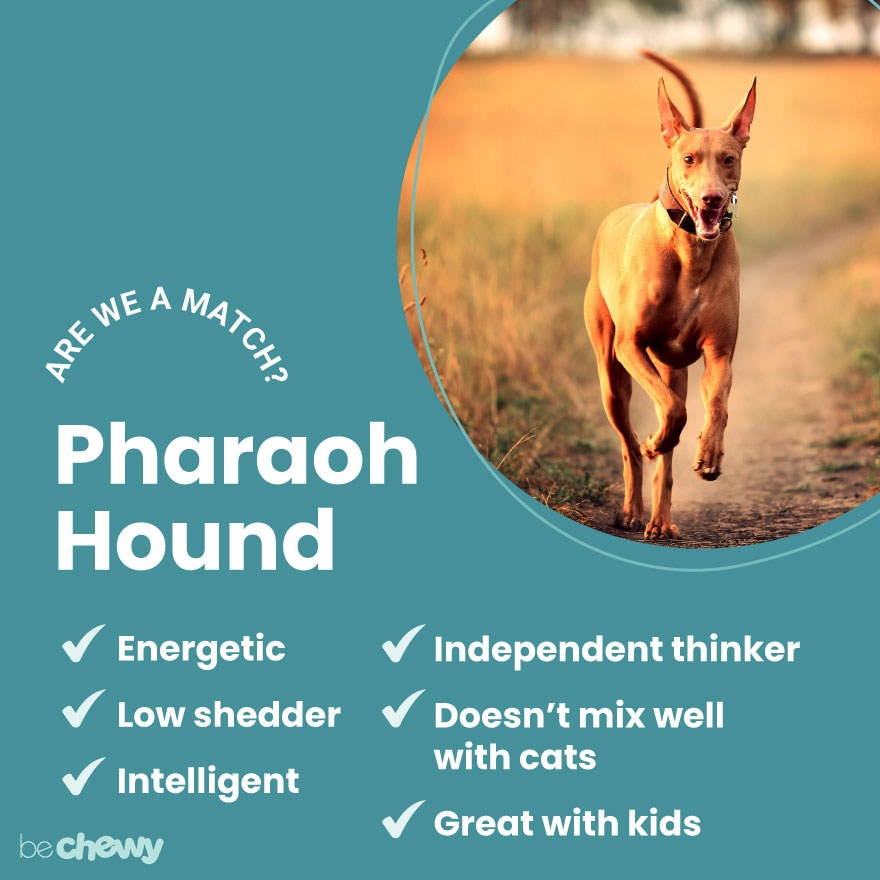
Top Takeaways
Pharaoh Hounds exude an aura of independence, and though they come off as being highly opinionated, the breed really is quite gentle and is an ideal choice for families. If you’re looking for a doting breed who’ll stay by your side or answer your beck and call, this is not the dog for you. Your Pharaoh Hound will rule the roost, so to speak, curling up on the sofa at the end of an adventurous day and doling out affection as they see fit. But if you’re looking to liven up your household with a dog who keeps you on your toes, the Pharaoh Hound can step into that role with noble swagger—and make it look good.
Expert input provided by Dr. Joseph Barrington, BVSc MRCVS from TheConsultVet.com; Dr. Rachel Barrack, DVM, CVA, CVCH, founder of concierge veterinary practice Animal Acupuncture; Sheila Hoffman, Breed Education Committee Chair of the Pharaoh Hound Club of America; Dr. Natalie L. Marks, DVM, CVJ, VCA Blum Animal Hospital, Chicago, Ill., and a host of TopVetsTalkPets.com; and Dr. Ruth MacPete, DVM and author of the children’s book, “Lisette the Vet.”
Breed characteristic ratings provided by Dr. Sarah J. Wooten, DVM, CVJ, a veterinarian at Sheep Draw Veterinary Hospital in Greeley, Colorado; dog trainer and behavior consultant Irith Bloom, CPDT-KSA, CBCC-KA, CDBC, owner of The Sophisticated Dog, LLC, in Los Angeles; and certified animal behavior consultant Amy Shojai, CABC, in Sherman, Texas.
The health content was medically reviewed by Chewy vets.

Search for Adoptable Pharaoh Hounds Near You
Female Names
- Nala
- Kona
- Frankie
- Tiki
- Theo
- Delphi
- Bailey
- Rudy Rose
- River
- Khali
Male Names
- Anubis
- Cairo
- Cooper
- Ted Wundy
- Jack
- Luther
- Louis Marell
- Ramses
- Gryphon
- Bone
Share:
